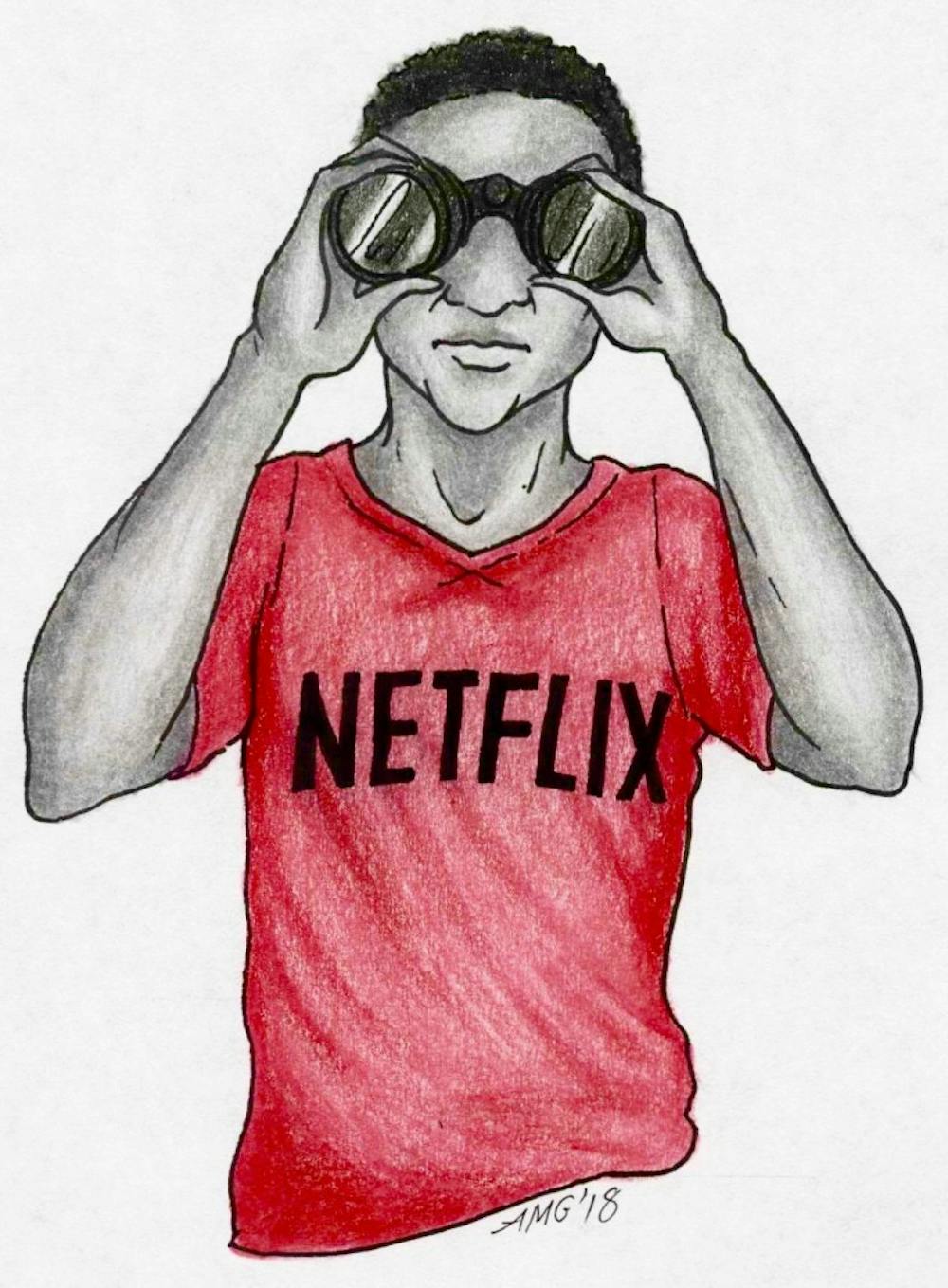“To the 53 people who’ve watched A Christmas Prince every day for the past 18 days: who hurt you?”
That was the tweet that Netflix’s account sent out on December 10, before they knew the criticism that would ensue. Netflix excels in putting out funny, in–the–know social media posts, and the tweet in question reads like an innocent attempt to promote its original Christmas special with some humor. But a number of people took the joke more seriously than that.
Twitter users quickly responded, replying to Netflix to tell the account that the dystopian novel 1984 is “not an instruction manual.” Trevor Timm, director of the Freedom of the Press foundation, took a more serious approach by posing a list of questions: “How many employees have access to people's viewing habits?,” “Are there any controls on how they can access this data/what it can be used for?,” “What's the punishment for creeping on people?,” and “Why are they publicly shaming customers?” News outlets picked up the story and soon organizations as diverse as the Washington Post and PerezHilton.com were running pieces that called the tweet “creepy.”
A conversation about privacy that implicates one of the biggest streaming platforms might seem like an overreaction to one single tweet from a company beloved by so many. This is, after all, the Internet—people love to overreact, and Netflix was just making a joke. But as Netflix hits record numbers of subscribers and continues to take over the television and movie landscapes, the issue of how it treats subscriber information is going to become harder to ignore, regardless of quirky tweets.
We live in the era of data collection. Just about every person uses the Internet, and just about every website tracks user information to tailor their experience, sell ads, or make a larger profit. There is a heady political debate on this topic that makes many of us roll our eyes and tune out. This specific incident isn’t a conversation about Chelsea Manning or the NSA. It’s an Internet fight that centers on a tweet about a movie that centers on a country called Aldovia and a quirky reporter who pairs Converse with a ballgown. If Netflix tweets about what you’re watching, does that really matter?
But it’s not “just television” or “just movies” or “just Netflix.” The media we consume matters now more than ever. Netflix streams more than its fair share of sensitive material. There is gritty and politically charged work in their catalogue, explicitly sexual material, and the list goes on. If you feel weird about watching that dick drawing mockumentary on the account that you share with your mom, how would you feel about a potential employer being able to see that you had watched it? If you lived in a country where homosexuality was criminalized, would you want a service to store data on the LGBT movies you had watched? Powerful people who knew the value of narrative storytelling used to burn books en masse. In the Internet age, they keep tabs on the stories we seek out instead. The practices of today are more insidious, but ideologically no different.
Sometimes, you just want to watch a movie without engaging in such a complicated conversation, which is fair. But it’s not political to suggest that you have a right to know about Netflix’s practices, and it’s not political to suggest that the data on what you’re watching does matter as much as any other kind of data does—it might even have a special significance. That holds true even if what you’re watching is A Christmas Prince—for 18 days in a row.







